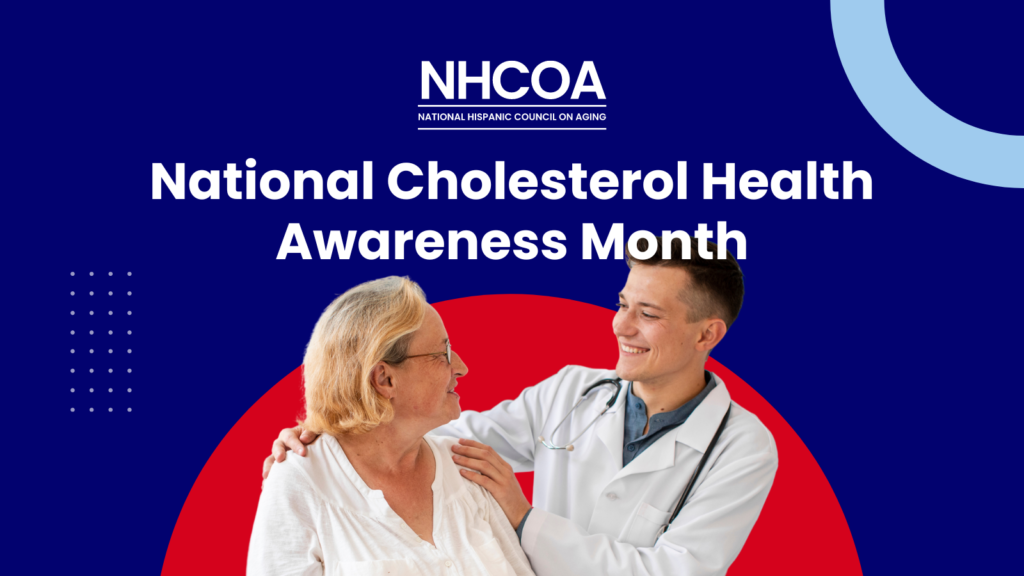
September is National Cholesterol Health Awareness Month, a time for us to refresh ourselves on the information available to help us improve our cardiovascular health, and to remind ourselves of the danger of cardiovascular disease (CVD).
In the United States, cardiovascular disease remains to be the primary cause of death, taking more lives than all types of cancer combined. Worldwide, CVD accounted for approximately 19 million deaths in 2020 alone. According to a 2022 study published by the National Institutes of Health (NIH), 42.7% of Latins and 52.3% of Latinos suffer from CVD, and only 40% and 16% respectively seek treatment.
Due to cultural and societal disparities, US Latinos face a heightened risk to CVD and poor cholesterol health. In light of this unfortunate reality, actress Gina Torres has partnered with Amgen and the American Academy of Family Physicians (AAFP) to better address cholesterol health within the Hispanic/Latino community. Gina shares a common experience amongst Latino families in the US, as her parents endured poor cholesterol in a country whose healthcare systems do not fully accommodate for non-English speakers.
The National Hispanic Council on Aging supports Gina, Amgen, and AAFP in their message and work. It is our job as members of the Hispanic/Latino community to ensure that are fellow community members have the information they need, and are taking advantage of the resources available to them.
What does it mean to have good cholesterol?
When we talk about having good cholesterol health, it’s important to remember the distinction between two types of cholesterol: low-density lipoprotein (LDL) cholesterol and high-density lipoprotein (HDL) cholesterol.
LDL cholesterol is the type that is often referred to as the “bad” cholesterol, as high levels of LDL cholesterol raise the risk for heart disease and stroke. When there is too much LDL cholesterol, it builds up along the walls of your blood vessels. That build-up is what’s known as “plaque,” which creates a strain on your blood flow. Our blood vessels are meant to evenly distribute our blood through the circulatory system; arteries are specifically distributing oxygen-rich blood. Having plaque in our blood vessels, makes the channel smaller and smaller, creating dangerous strain that could even result in clogging.
This is a stark comparison to HDL cholesterol, or “good” cholesterol as the case may be. HDL actually absorbs cholesterol within the blood and carries it back to our livers, which in turn filter and flush it from our bodies. Whereas high levels of LDL cholesterol raise the risk of heart disease and stroke, high levels of HDL cholesterol actually lessen the risk.
How do I manage my cholesterol?
Effective management of cholesterol always begins with making healthy choices in your day-to-day life. Such day-to-day choices include:
• Choosing healthier foods that are low in saturated fat
• Exercising regularly
• Quitting smoking
However, to better understand your own cholesterol health, and what management strategies may be the most effective, you should consult a medical professional. This means that it is absolutely necessary to get tested/screened for your cholesterol levels through a blood sample. Both the Centers for Disease Control and the American Heart Association recommend that individuals 20 years and older should screen their cholesterol levels about every 6 years.
Per the collaboration between Gina Torres, Amgen, and AAFP, you can learn more about scheduling your screening for cholesterol levels at FamilyDoctor.org/LDL
If you’re interested in learning more about cholesterol health and CVD, check out our earlier blog posts on similar topics:
- “Understanding Cardiovascular Disease,” with expertise from Dr. Genory Gutiérrez Vega.
- “Conociendo la lucha contra la ECV: Encontrando comida nutritiva en EE.UU.”
References:
- “LDL And HDL Cholesterol and Triglycerides,” Cholesterol. The Centers for Disease Control. https://www.cdc.gov/cholesterol/about/ldl-and-hdl-cholesterol-and-triglycerides.html#:~:text=Two%20types%20of%20lipoproteins%20carry%20cholesterol%20through%20the%20blood%20vessels,for%20heart%20disease%20and%20stroke.
- “Cholesterol,” Health Topics. American Heart Association. https://www.heart.org/en/health-topics/cholesterol

Recent Comments